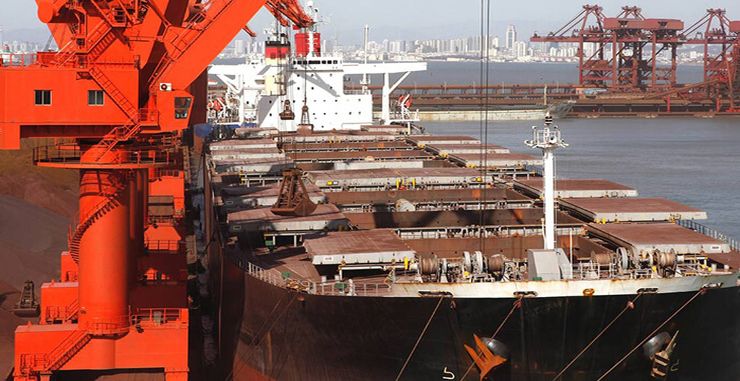Backlog of ships strains Ukraine-Russia Black Sea grain export deal

A UN-backed grain deal that has enabled Ukraine to export millions of tonnes of wheat is under strain as a surge in the number of cargo ships has caused a backlog aiming to cross the Black Sea.
The number of vessels waiting to sail to or from Ukrainian ports reached a record high of 120 at the end of last week, prompting growing frustration in Kyiv and accusations of stalling tactics by Moscow at a time when Russia is struggling to repel Ukraine’s counteroffensive in occupied regions. The time that ships are having to wait for inspections at a monitoring centre in Istanbul has risen to between 10 and 15 days since mid-September, according to grain research firm SovEcon, up from five to six days in the first six weeks of the deal. The delays have prompted calls for more inspectors to be added to meet demand from the large number of craft using the route. Ukraine, one of the world’s largest wheat producers, is eager to export as much grain as possible to create space in its silos for newly harvested crops. It has grown increasingly anxious about the backlog, according to two officials familiar with the workings of the deal.
“There is a bit of frustration in that the Ukrainians clearly would like to export as much as possible”, said one of them. Amir Abdulla, the UN official in charge of co-ordinating the Black Sea grain initiative, conceded that the five teams of inspectors — which include representatives from Russia, Ukraine, Turkey and the UN — were struggling to meet the demand. “We basically need to get all parties to agree that we need to add inspectors,” Abdulla told the Financial Times. The people familiar with the deal — which is up for renewal next month — said Russia had been reluctant to send additional inspectors to help clear the backlog.
That has angered Ukrainian officials. “For the moment there is no decision from all [monitoring centre] members to increase the numbers of inspections in order to avoid further congestion of the vessels waiting for inspection,” said Yuriy Vaskov, Ukraine’s deputy infrastructure minister. The Kremlin did not respond to a request for comment on the number of inspectors. UN officials said the backlog was a testament to the success of the grain deal, which was signed by Ukraine and Russia in July after mediation efforts by the UN and Turkey, with up to 16 new vessels a day being signed up to collect shipments as part of the agreement. “There are more ships arriving for this than any of us predicted,” Abdulla said, adding that close to 7mn tonnes of grain had been exported from Ukraine since the start of August.
“That’s the positive side of why we’ve got as many ships joining.” Insufficient preparedness by some crews and ship owners has also caused some ships to fail their inspections, adding to the inspectors’ workload. But the backlog comes at a highly sensitive time, with the 120-day deal up for renewal on November 19. “Everyone’s edgy and aware that big things are going on [in the conflict] that could derail the grain deals,” said one person involved in indirect negotiations between Ukraine and Russia. There is increasing nervousness among grain traders that the deal will not be extended — with worrying implications for global food security. “If the export corridor is not renewed the [grain] market will explode again,” said Alex Sanfeliu at agricultural trading company Cargill. Black Sea freight rates have risen by almost 10 per cent over the past week, according to pricing agency Agricensus — a spike that traders blamed on the increased risk that intensified military activity may jeopardise the deal.
“Extending the Black Sea Grain Initiative is critical as it has benefited the world immensely by getting wheat to developing countries at risk of famine and stabilising global wheat prices,” said John W.H. Denton, secretary-general of the International Chamber of Commerce, which was involved in devising the grain deal. As the date for renewal nears, Kyiv is pushing to expand the agreement to include a fourth port, the large grain export hub of Mykolayiv. Moscow, meanwhile, is pushing for progress on a delayed agreement aimed at exporting Russian ammonia. One person familiar with the grain deal dismissed fears that it would not be renewed, arguing that there were incentives for both sides to continue. “Most of us firmly believe that it will be extended,” the person said.
Read also
Wheat in Southern Brazil Impacted by Dry Weather and Frosts
Oilseed Industry. Leaders and Strategies in the Times of a Great Change
Black Sea & Danube Region: Oilseed and Vegoil Markets Within Ongoing Transfor...
Serbia. The drought will cause extremely high losses for farmers this year
2023/24 Safrinha Corn in Brazil 91% Harvested
Write to us
Our manager will contact you soon



